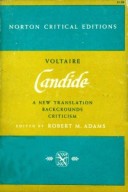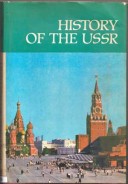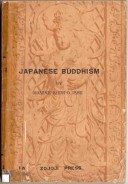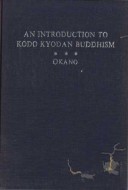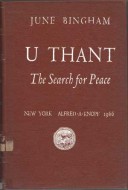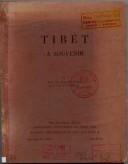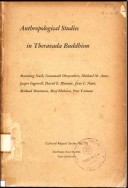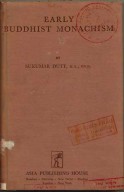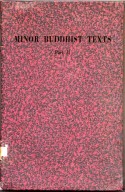MCB: 1210000005531
A New Translation Backgrounds Criticism
CANDIDE or Optimism
Translated and Edited by ROBERT M. ADAMS
CORNELL UNIVERSITY
CONTENTS
Preface vii
The Text of Candide, or Optimism 1
Backgrounds
Summary: The Intellectual Backgrounds 81
Voltaire • Well, Everything is Well 86
Gustave Lanson • Voltaire at Les Délices and at Ferney 92
André Morize [The “Moment” of Candide and the Ideas of Voltaire] 101
- O. Lovejoy • The Principle of Plenitude and Eighteenth-Century Optimist 111
Criticism
The Contes of Voltaire, and Other Writings 125
Georges Ascoli • [Voltaire: The Storyteller’s Art] 129
René Pomeau • [Providence, Pessimism, and Absurdity] 137
- O. Wade * [Voltaire and Candide] 142
- G. Weightman • The Quality of Candide 151
Robert M. Adams • Candide on Work and Candide as Outsider 165
The Climate of Controversy 174
Voltaire’s faith—Voltaire: Letter on the ubject of Candide 175 • William Blake 178 • André De- lattre 178
Voltaire’s greatness—Joseph de Maistre 179 • Victor Hugo 180 • The Goncourts 181 Voltaire’s coherence—Emile Faguet 182 • Daniel Mornet 183
Voltaire’s humanity—Madame de Stael 184 • Ana- tole France 185 • Gustave Flaubert 185
Bourgeois or Nihilist?—William F. Bottiglia 186 • Ludwig w. Kahn 187 * William F. Bottiglia 188 • Gustave Flaubert 189 • The Climate of Controversy 174
Voltaire’s style—George Saintsbury 189 • Heinrich Heine 190 • Novalis 190 • Hippolyte Taine 190 Voltaire’s apotheosis—Paul Valery 191
Bibliography 193
PREFACE
When Candide first set forth into the world, in January, 1759, he did not do so under the aegis of M. de Voltaire, the well-known poet, tragedian, historian, philosopher, and friend of Frederick the Great. As illegitimate as its hero, the book Candide proposed itself as the work of “Dr. Ralph”; and if it had not been signed extravagantly between the lines with another and better-known autograph, would doubtless figure today only in Barbier and Dillard’s labyrinthine listing of anonymous literature.
The little book made its way, in other words, on its own—was read because it was amusing, and for that reason alone, and has only lately started to appear on assigned-reading lists and enumerations of “the world’s great books.” Now that it is a classic, I suppose the first thing the startled student must be told is that it is still funny.
The other things about the story, and there are a good many of them, come a long way after this first article.
Candide is a cruel and destructive book as well as a funny one. Funny and cruel: the qualities go together more easily perhaps than we like to think. But they would not suffice for the peculiar vitality of Candide, unless something else were added. If all it did was demolish a long-outdated system of German philosophy, its fun might feel as antiquated and its cruelty as gratuitous as Shakespeare’s puns or Pope’s malignant hounding after dunces. But Candide’s cruelty is not sour, and its fun remains modem and relevant. Dozens of heroes in modem fiction are Candides under one disguise or another, as our standard heroine is a reworked Madame Bovary—who herself has more than a touch of Candide in her complexion. Why Voltaire’s little book feels so modem clearly has something to do with the things it destroys and the way in which it carries out that work of destruction. But it is neither necessary nor possible to be peremptory in defining its targets, for satire generally works more widely than even its creator realizes. There’s something in it for everyone. So the book’s exact import is evidently up to the decision of the duly informed and sensitive reader—for whose individual responses to the actual work of art there neither is nor can be any substitute.
Though its action scampers dizzily around the perimeter of the civilized world, Candide is an essentially European book in its passionate addiction to, and scepticism of, the reasonable life. It could easily have a number of subtitles other than “Optimism”; one good one would be “Civilization and Its Discontents.”
The present translation has aimed to be neither literal nor loose, but to preserve a decent respect for English idiom while rendering a French intent. It was made from the old standard Morize edition, still a classic despite its age, and especially useful for the dry, neat erudition of its notes. But in its late stages, the English text was read against, and modified to conform with, M. René Pomeau’s 1959 edition, which introduces a few recent textual modifications. The text of Candide contains little that is problematic; it is clean, clear, and relatively uncluttered with afterthoughts. As for Voltaire’s prose, it is late in the day to pronounce in its favor; a translator, however, may speak with special feeling of its lucidity, lightness, and swiftness of tonal variation. It is a joy to translate.
The editor wishes to express his acknowledgments to John Bender and Dennis Prindle for looking up necessary items in the library and sending them across necessary oceans; to an editor whose professional modesty keeps him anonymous; and to Mile. J. Dubuis of the Musée et Institut Voltaire at Les Délices in Genève, for permission to use the collections there and for five-o’clock tea on raw winter afternoons.
Robert M. Adams
 Facebook
Facebook
 Google
Google
 Google+
Google+
